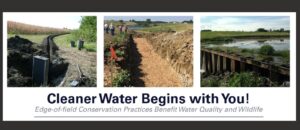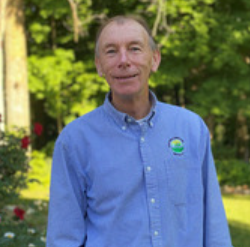The Iowa Nutrient Research Center continues its spring 2024 seminar series, Focus on the Future. Join current and recent graduate students as they discuss their studies and their experiences as early career researchers.
On May 8th, the seminar topics are:
1) Evaluating Wildlife Responses to Working Land and Water Conservation
Presenter: Michael Rohde, Department of Natural Resource Ecology and Management. Advisor: Adam Janke
Iowa’s urbanized and agricultural landscape has caused water quality degradation and loss of species. Conservation groups are working to protect these resources, but they often lack coordination. To provide insight on the impact of water quality conservation on wildlife. He will provide estimated occupancy of key Species of Greatest Conservation Need (SGCN) across Iowa informed by the Iowa Multiple Species Inventory and Monitoring (MSIM) long-term dataset and the simulated various scenarios of water quality conservation using the Agricultural Conservation Planning Framework (ACPF) to estimate potential effects of water quality conservation on the distribution of SGCN in Iowa.
2) Managing Crop Residue to Reduce AONR (Agronomic Optimum N Rate) for Water Quality
Presenter: Alexandria Logan, Department of Agronomy. Advisor: Michael Castellano
With renewed interest in using crop residue as biofuels and increasing yields, research aiming to understand the effects of residue management on the soil nitrogen cycle is necessary. This research evaluates crop residue management’s influence on optimum nitrogen rates, focusing on the subsequent corn crop.
The presentations are from 3:10-4:00 p.m. and take place online and at 1306 Elings Hall on the Iowa State University campus.

